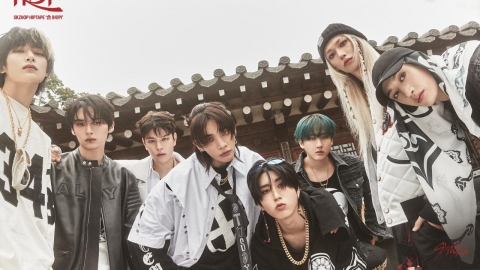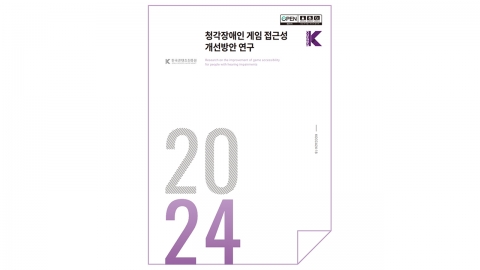Next, let's point out the related content again with reporter Shin Gwi-hye in the studio. I don't think I've entered the interior of my official residence yet. Shall we point it out again from the time of execution of the warrant?
[Reporter]
At 8 a.m. today, the Senior Civil Servant Corruption Investigations Unit entered the presidential residence in Hannam-dong, Seoul, and began executing an arrest warrant for President Yoon Suk Yeol. Earlier today, YTN reporters caught the scene of a vehicle carrying prosecutors from the Senior Civil Servant Corruption Investigations Unit departing from the Gwacheon Government Complex at around 6:15 a.m. I entered the presidential residence in Hannam-dong, Yongsan-gu, Seoul in about two hours. Currently, about 150 people have been involved in the execution of arrest warrants at the official residence in Hannam-dong, Seoul, and it has been confirmed that there are about 30 officials from the Airborne Division and 120 police special teams. There was also a physical fight in the process of entering, but the police approached the official residence through the first and second cordons. Now, we are asking for cooperation by presenting a warrant to the head of the security service. It has been three days since an arrest warrant was issued for President Yoon on charges of rebellion.
[Anchor]
What are the warrant execution procedures?
[Reporter] The arrest warrant for President
Yoon was requested under the name of Cha Jung-hyun, the chief prosecutor of the Senior Civil Servant Corruption Investigations Unit. Today, senior prosecutor Lee Dae-hwan, who will participate in President Yoon's investigation, went out to execute the warrant himself. Prosecutors and investigators from the Senior Civil Servant Corruption Investigations Unit headed to the presidential residence with the original arrest warrant. First of all, before executing the warrant, you must present an arrest warrant to the suspect, President Yoon Suk Yeol, and explain the reason. I have to say "Miranda Principles" again. It is a procedure that explains the rights of suspects, such as having the right to refuse unfavorable statements and having the right to appoint a lawyer. It was argued that the attempt to arrest could be prevented based on the military secrets of Article 110 of the Criminal Procedure Act and the official secrets of Article 111.
However, it was found that the arrest and search warrant for President Yoon stated that exceptions were made to the application of the criminal procedure law. Unlike the search and seizure warrant to secure evidence, there is room for a different interpretation of the law as it is used to identify the whereabouts of the suspect. Security officers blocked the execution by building a barrier in the compound of the residence, but it was confirmed that the air defense office approached the residence by breaking through the first and second cordons. Now, he is offering a warrant to the security chief and asking for cooperation, but the security chief is found to be refusing to cooperate, citing the security law and the security area.
[Anchor]
And President Yoon Suk Yeol is now taking issue with the judge issuing an arrest warrant and making an exception to the application of the Criminal Procedure Act. What are you talking about specifically?
[Reporter]
That's right. A warrant judge in the Western District Court has committed an offense that makes the Criminal Procedure Act an exception while issuing an arrest warrant requested by the Airborne Division, which has no authority to investigate the crime of rebellion. At the same time, the Supreme Court insists that the judge who issued the warrant should conduct a fact-finding investigation and take disciplinary action against the exclusion of duties. In defiance of the issuance of the warrant, he applied for a power dispute trial and a provisional injunction to suspend the validity of the warrant to the Constitutional Court, and yesterday filed an objection with the court, asking the court to disallow the execution of the warrant.
[Anchor]
Wasn't the Senior Civil Servant Corruption Investigations Unit taking measures to prevent conflicts with supporters? What kind of response did you take?
[Reporter]
The Senior Civil Servant Corruption Investigations Unit has decided to cooperate with the police task force in preparation for such a collision. In response, President Yoon said that the Senior Civil Servant Corruption Investigations Unit does not have the authority to command the police investigation, and that the police task force can only maintain order and conduct security activities. The intention was that if the task force starts arresting or executing a search warrant, it is illegal in the eyes of President Yoon, so any bodyguard or citizen can be arrested for obstruction of business or abuse of authority.
Earlier on New Year's Day, President Yoon Suk Yeol delivered an A4-page message to supporters gathered in front of the presidential residence. He said the Republic of Korea is in danger due to the invasion of sovereignty and anti-state forces, adding that he will fight together to protect the country until the end. As a result, a large number of supporters are actually gathered, and the possibility of a collision at the scene is also raised.
Fortunately, there hasn't been a collision yet. However, if the arrest warrant for President Yoon is actually executed and moves to the Senior Civil Servant Corruption Investigations Unit, there is still tension in the scene as supporters' opposition could be strong.
[Anchor]
We're continuing to show you the situation in front of the main gate and around the residence, but we don't know what's going on inside the residence yet.Ma, if an arrest warrant is executed and President Yoon Suk Yeol is secured, where will President Yoon Suk Yeol move to?
[Reporter]
If President Yoon is arrested, he will be inches into an internal facility in Building 5 of the Gwacheon Government Complex. It is about 10 km away from the presidential residence. The Senior Civil Servant Corruption Investigations Unit has set up a separate investigation room by referring to past cases such as former President Park Geun Hye. If President Yoon is arrested, the Senior Civil Servant Corruption Investigations Unit must decide whether to request an arrest warrant within 48 hours from the time of his arrest. He is expected to be detained at the Seoul Detention Center in Uiwang until 48 hours are over after the investigation by the Senior Civil Servant Corruption Investigations Unit.
[Anchor]
Then, who will be in charge of investigating President Yoon in the future?
[Reporter]
Since the investigation into the incumbent president is the first in the constitutional history, the Senior Civil Servant Corruption Investigations Unit has also undergone internal discussions to be formal and respectful. First of all, Chief Prosecutor Cha Jung-hyun and Chief Prosecutor Lee Dae-hwan, who directly requested an arrest warrant, are expected to participate in the investigation.
[Anchor]
It's our first time arresting and investigating the incumbent president. But there was an investigation into the former president. How did the investigation of past presidents go?
[Reporter]
First of all, in the case of former President Park Geun Hye, after he was dismissed, he attended the prosecution and was investigated. Former Prosecutor General Lee Won-seok, who was the first special director of the Central District Prosecutors' Office at the time, alternated with Han Woong-jae, the then senior prosecutor. In the investigation of former President Lee Myung Bak, Song Kyung-ho, former head of the Seoul Central District Prosecutors' Office, participated as the second special director, and Shin Bong-soo, chief of the Daegu High Prosecutors' Office, participated as the first head of the high-tech crime investigation. Former President Roh Moo Hyun was investigated by the prosecution after leaving office due to allegations of Park Yeon-cha's gate, when he was investigated by Woo Byung-woo, former senior presidential secretary for civil affairs. Since President Yoon is currently in office, there is a limit to comparing it with the cases of former presidents, but as in the past, Lee Jae-seung, deputy prosecutor of the Senior Civil Servant Corruption Investigations Unit, is expected to greet President Yoon again. However, it is unclear how it will proceed as President Yoon denies the investigation authority of the Senior Civil Servant Corruption Investigations Unit itself.
[Anchor]
Shall we summarize the allegations of abuse of authority and rebellion applied to President Yoon and the specific crimes?
[Reporter]
President Yoon is simultaneously accused of abuse of authority and rebellion. On December 3 last year, when the emergency martial law was declared, a riot was staged to paralyze the function of an independent constitutional institution, including sending martial law troops and police to the National Assembly and the NEC. First of all, if you look at the proclamation announced immediately after President Yoon Suk Yeol declared martial law, political activities are prohibited first. To this end, it was revealed that the National Assembly was blocked and major politicians, including National Assembly Speaker Woo Won-sik, Democratic Party leader Lee Jae-myung, and then People's Power leader Han Dong-hoon, were ordered to be arrested. President Yoon himself ordered, "Even if you shoot, break down the door and bring down the lawmakers."Or, testimonies poured out saying, "You can declare martial law two or three times." In particular, if you look at the prosecution of former Defense Minister Kim Yong-hyun and Yeo In-hyeong, the head of the Defense Security Command, who were recently arrested and charged, there are many circumstances in which the president directly intervened.
[Anchor]
What is President Yoon's position on this?
[Reporter]
Yoon denies the allegations. First of all, declaring emergency martial law is a high-level act of governance and is the president's own authority. So they are confronting that it is not the subject of judicial review, that is, it is not a matter of investigation or trial. On the other side, the emergency decree claims that there was no purpose or riot in the constitution. It is argued that in order to actually paralyze the National Assembly, they would have cut off water and electricity first and carried out it in a surprise manner at dawn on a deserted weekend. He also argued that it was not a riot, saying that no injuries were reported at the time of martial law, and that only small troops were deployed to maintain order, and that it was not a riot. However, the truth is expected to be revealed through the investigation because the statements of the officials who oppose this came out in the open inquiry of the National Assembly.
[Anchor]
We are showing you from side to side the front gate in front of the presidential residence and the entrance to the residence. We see a small number of people moving in front of the front gate of the presidential residence.I haven't seen a large number of people moving decisively yet. We started moving from the airlift at 6 o'clock, so it's been about 5 hours so far, and we've been trying to enter the official residence at 8 o'clock, so we're trying to execute an arrest warrant for the president for about 3 hours now.Ma doesn't seem to be going inside his official residence yet. I'll continue to show you in real time. It is the first attempt to execute an arrest warrant for a sitting president in constitutional history. Shall we take a look at the procedures in which the investigation has been conducted?
[Reporter]
First, on December 3rd last year, President Yoon Suk Yeol declared an emergency martial law. A week later, President Yoon was banned from leaving the country, and the prosecution formed a "special investigation headquarters" with the military prosecution, and the police and the Senior Civil Servant Corruption Investigations Unit with the Ministry of National Defense's investigation headquarters. In the process, controversy over investigative competition arose. The police and the Senior Civil Servant Corruption Investigations Unit notified President Yoon of the summons three times on December 18, 25, and 29, and the prosecution notified him twice as a suspect on December 15 and 21. Eventually, on December 18 last year, the prosecution transferred the case of President Yoon Suk Yeol to the Senior Civil Servant Corruption Investigations Unit, and the controversy over the right to investigate ended. Since then, President Yoon has refused to serve the request for attendance by the Joint Investigation Headquarters and search and seizure, and the Joint Investigation Agency requested an arrest warrant for President Yoon at midnight on December 30. After 33 hours of consideration, the court issued an arrest warrant for President Yoon on charges of rebellion and other charges in the morning of the last day of 2024.
[Anchor]
On the 3rd of last month, just a month has passed since President Yoon Suk Yeol declared an emergency martial law. If the arrest warrant is not executed today, what will happen in the future if the president of Yoon Suk Yeol is not secured?
[Reporter]
The court-issued arrest warrant is valid until January 6. Until the expiration date is over, you can try to execute it again several times with the warrant issued this time. However, if the expiration date ends in the process, you must request an arrest warrant from the court again to seek the judgment of the government officials.
[Anchor]
We will tell you as soon as we get an update on how the execution of the arrest warrant will proceed today. So far, we've been with reporter Shin Gwi-hye in the studio.
※ 'Your report becomes news'
[Kakao Talk] YTN Search and Add Channel
[Phone] 02-398-8585
[Mail] social@ytn. co. kr
[Copyright holder (c) YTN Unauthorized reproduction, redistribution and use of AI data prohibited]
Society
More- Civic groups continue rally to call for 'President's arrest' for three days and two nights
- Special Forces, two additional security officials are booked and summoned.
- Court rejects President Yoon's objection to 'executing arrest warrant'
- [Breaking News] Court rejects President Yoon's objection to 'executing arrest warrant'
![[Exclusive] The ruling party pushes for 'adoption of witnesses Lee Jae-myung'...a war of nerves under the Special Committee on National Assistance](https://image.ytn.co.kr/general/jpg/2025/0105/202501051457294714_h.jpg)
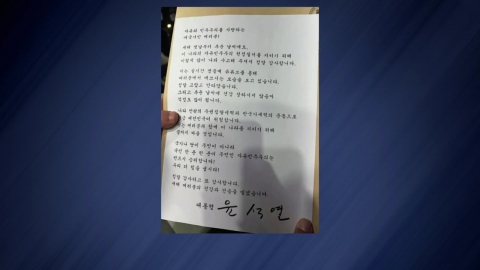
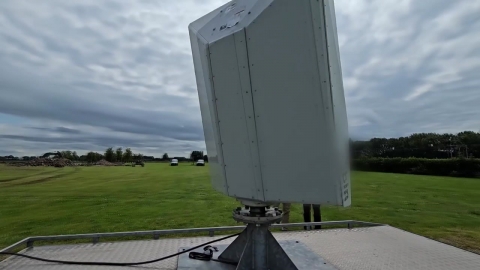
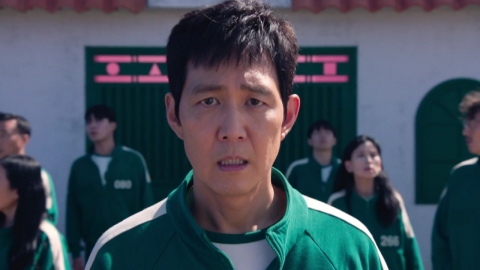
![[Interview] What Lee Jung-jae calls 'Squid Game 2'..."It's not a cheer for Sung Ki Hoon".](https://image.ytn.co.kr/general/jpg/2025/0105/202501050800088130_h.jpg)
![[Interview] Everything about "Omg 2" that director Hwang Dong-hyuk revealed...From the controversy over his acting skills to Sung Ki-hoon's contradiction,](https://image.ytn.co.kr/general/jpg/2025/0105/202501050800013506_h.jpg)
